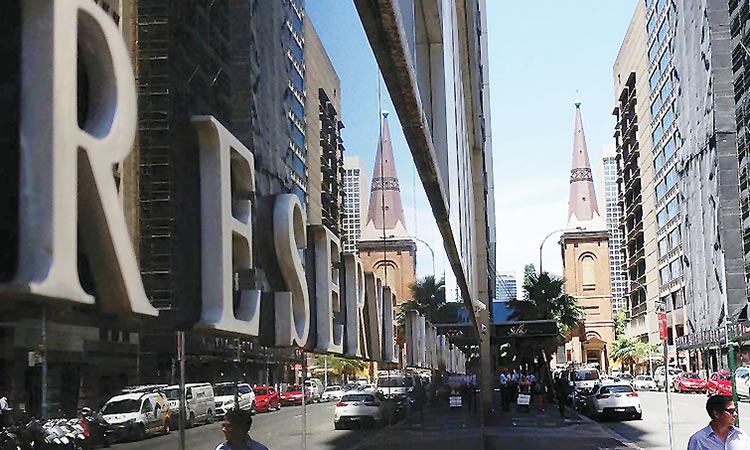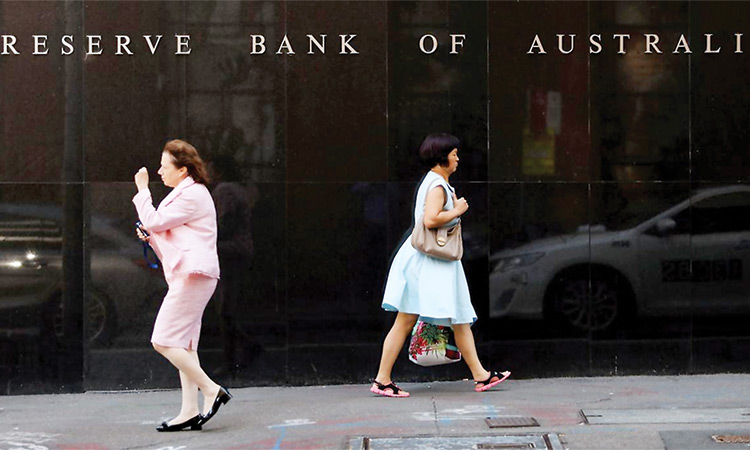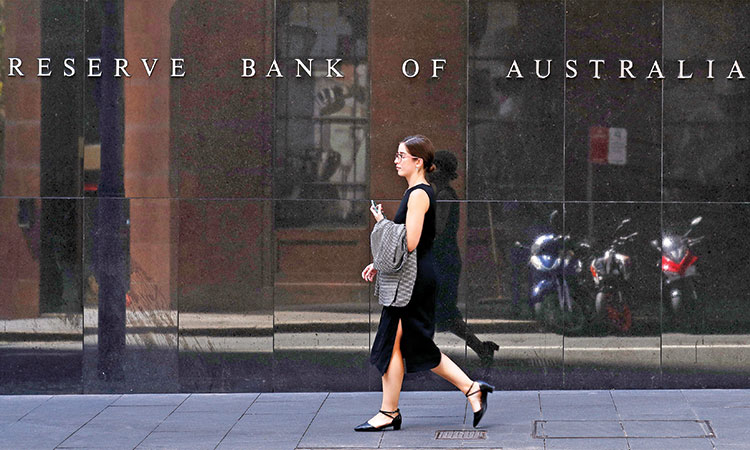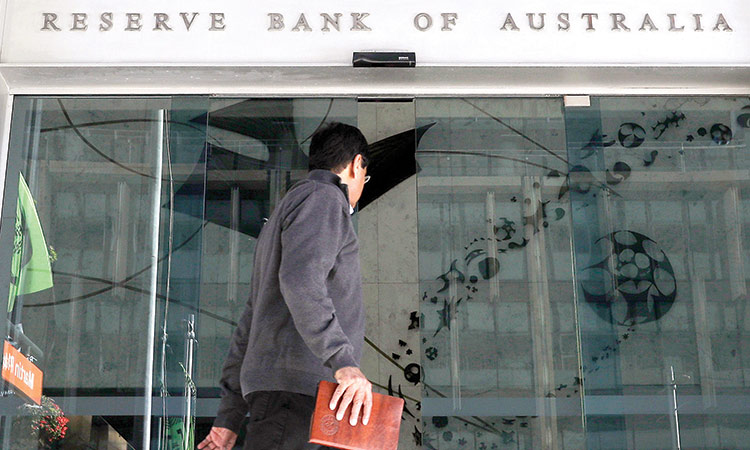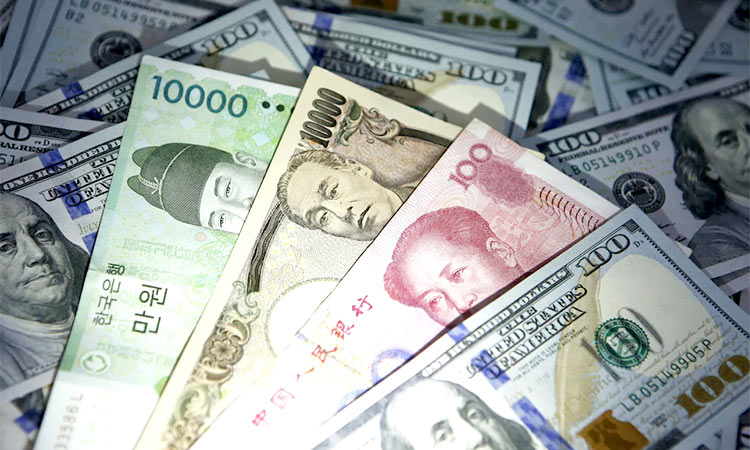Australia cuts rates to record low on trade war concerns
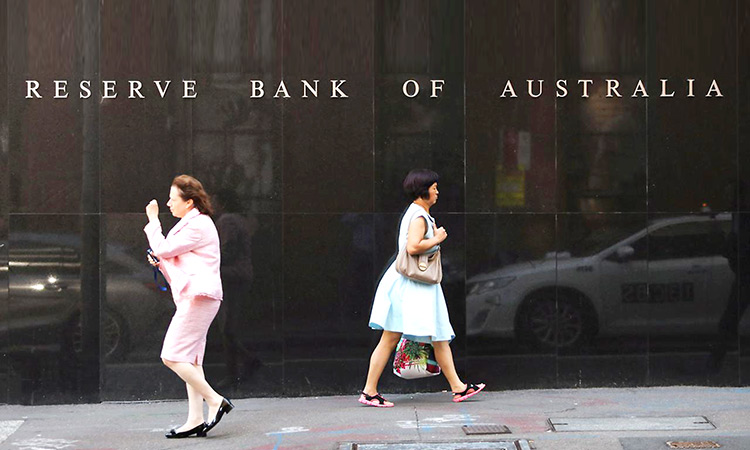
People walks past the Reserve Bank of Australia in Sydney. Reuters
The Reserve Bank of Australia (RBA) lowered rates by a quarter of a percentage point for the first time in nearly three years to 1.25%. The easing comes a day before first-quarter data is expected to show the A$1.9 trillion ($1.33 trillion) economy hitting its weakest annual growth in a decade.
RBA Governor Philip Lowe said the rate cut was designed to support employment growth and ensure inflation was consistent with its 2%-to-3% medium-term target. He also noted increasing downside risks for the global economy stemming from trade disputes.
“Growth in international trade remains weak and the increased uncertainty is affecting investment intentions in a number of countries,” Lowe said in a brief statement after the decision.
In a signal that more cuts were possible, Lowe said: “The Board will continue to monitor developments in the labour market closely and adjust monetary policy to support sustainable growth in the economy and the achievement of the inflation target over time.” Investors will get further clarity on future moves later in the day when Lowe gives a speech in Sydney at 0930 GMT, followed by a media conference.
“We expect tonight’s speech to be about the RBA calling for other arms of policy to be used in a more ‘pro-growth’ manner,” said HSBC Chief Economist Paul Bloxham.
The Australian dollar gained after the rate decision, which was fully priced in by the market. The Aussie was last up 0.1% at $0.6982 as investors were wagering on larger reductions in US rates over the next year or so.
Australia’s rate cut is the latest in a swing by central banks around the world toward looser monetary policies as the intensifying Sino-US trade war threatens global economic prospects.
Last month, New Zealand’s central bank cut its benchmark interest rate for the first time in two-and-a-half years in a bid to support a cooling economy and counter global uncertainties.
South Korea’s central bank last week kept its policy settings unchanged but adopted a more accommodative tone while India is expected to cut rates at its policy meeting on Thursday.
Australia’s economy has not reported a recession since the early 1990s but is now battling falling home prices, rising unemployment, sluggish consumer spending and lukewarm inflation.
Underlining these pressures, data released earlier in the day showed retailers began the second quarter of the year on a gloomy note with April sales falling.
Household consumption has been a major source of worry for the RBA as miserly wage growth and falling home prices eat into spending power in a sector that accounts for 56% of the economy.
That has led many economists to predict more stimulus. Financial markets are predicting a second RBA cut by September and a 50-50 chance of a third move before the end of the year.
National Australia Bank chief economist Ivan Colhoun said there was a risk of a third cut in the first half of 2020.
“This reflects the view that the somewhat slower growth in prospect will require further monetary stimulus,” Colhoun added.
“It’s quite possible that the government will begin to contemplate some further fiscal support as well later in the year if current trends continue.” Lowe has recently said monetary policy alone will not be enough to boost economic momentum as households were already up to their eyeballs in debt, putting the onus on the newly re-elected coalition government to do its part.
In a further boost to borrowers, Commonwealth Bank of Australia and National Australia Bank passed on the cut in full although ANZ Banking Group lowered its mortgage rates only by 18 basis points.
Other banks were expected to follow suit after Treasurer Josh Frydenberg told the heads of the country’s Big Four banks the government wants them to pass on the rate cut in full.
“A timely boost for households facing cost-of-living pressures,” Frydenberg said of the RBA move.
“The benefits to the economy from this rate cut will not be insignificant but it is important that the banks hear the message from the Australian people that they should pass on the benefits of these rate cuts to their customers.”
Australian retailers began the second quarter of the year on a gloomy note as sales fell in April in a sign of rising strain on the broader economy just hours before the country’s central bank is seen likely to cut interest rates to record lows.
Tuesday’s data from the Australian Bureau of Statistics (ABS) showed retail sales fell 0.1% in April from March, the first negative reading this year and confounding forecasts for a 0.2% gain.
Reuters
